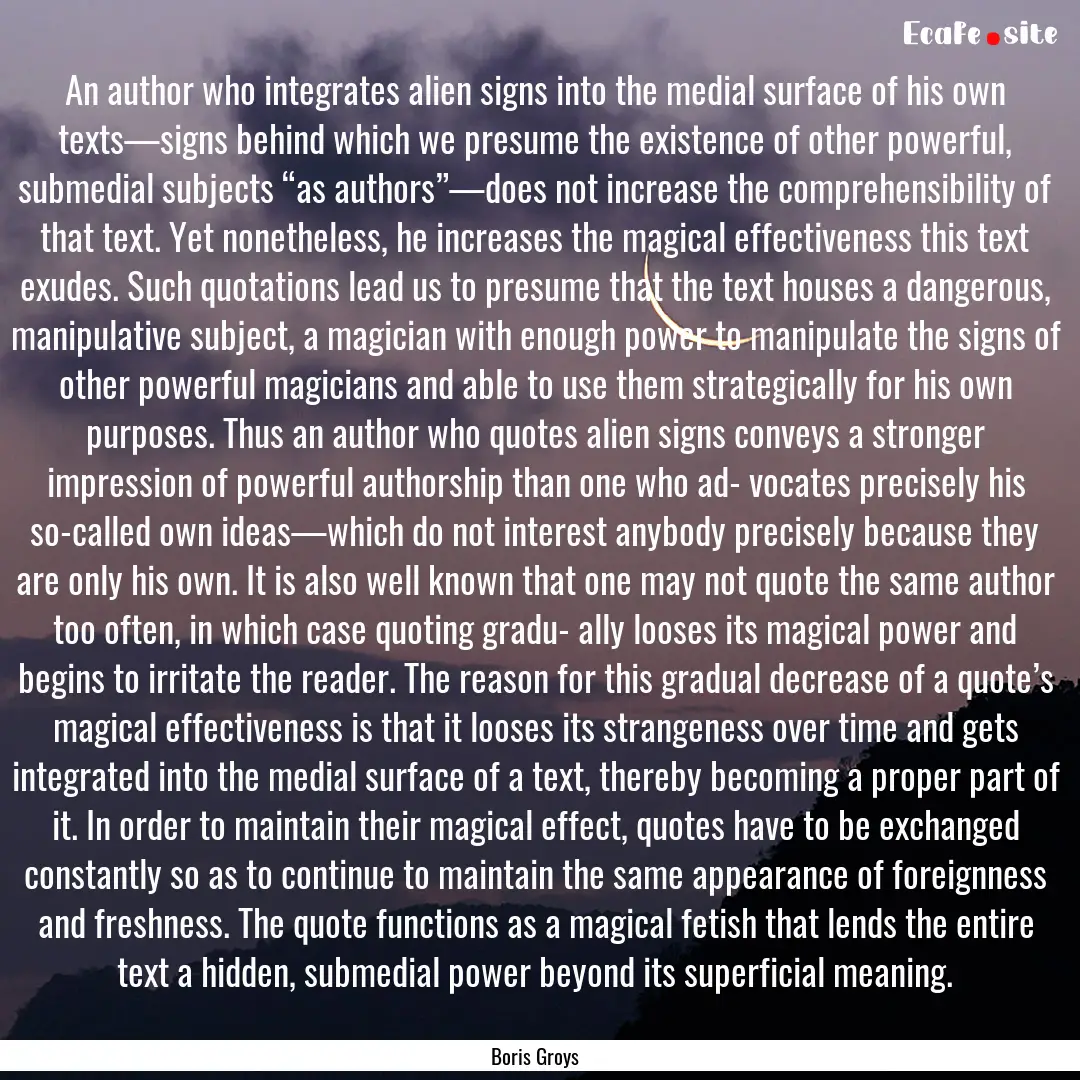
Report, if you have a problem with this page“ An author who integrates alien signs into the medial surface of his own texts—signs behind which we presume the existence of other powerful, submedial subjects “as authors”—does not increase the comprehensibility of that text. Yet nonetheless, he increases the magical effectiveness this text exudes. Such quotations lead us to presume that the text houses a dangerous, manipulative subject, a magician with enough power to manipulate the signs of other powerful magicians and able to use them strategically for his own purposes. Thus an author who quotes alien signs conveys a stronger impression of powerful authorship than one who ad- vocates precisely his so-called own ideas—which do not interest anybody precisely because they are only his own. It is also well known that one may not quote the same author too often, in which case quoting gradu- ally looses its magical power and begins to irritate the reader. The reason for this gradual decrease of a quote’s magical effectiveness is that it looses its strangeness over time and gets integrated into the medial surface of a text, thereby becoming a proper part of it. In order to maintain their magical effect, quotes have to be exchanged constantly so as to continue to maintain the same appearance of foreignness and freshness. The quote functions as a magical fetish that lends the entire text a hidden, submedial power beyond its superficial meaning. ”

Boris Groys
From : Under Suspicion: A Phenomenology of Media



